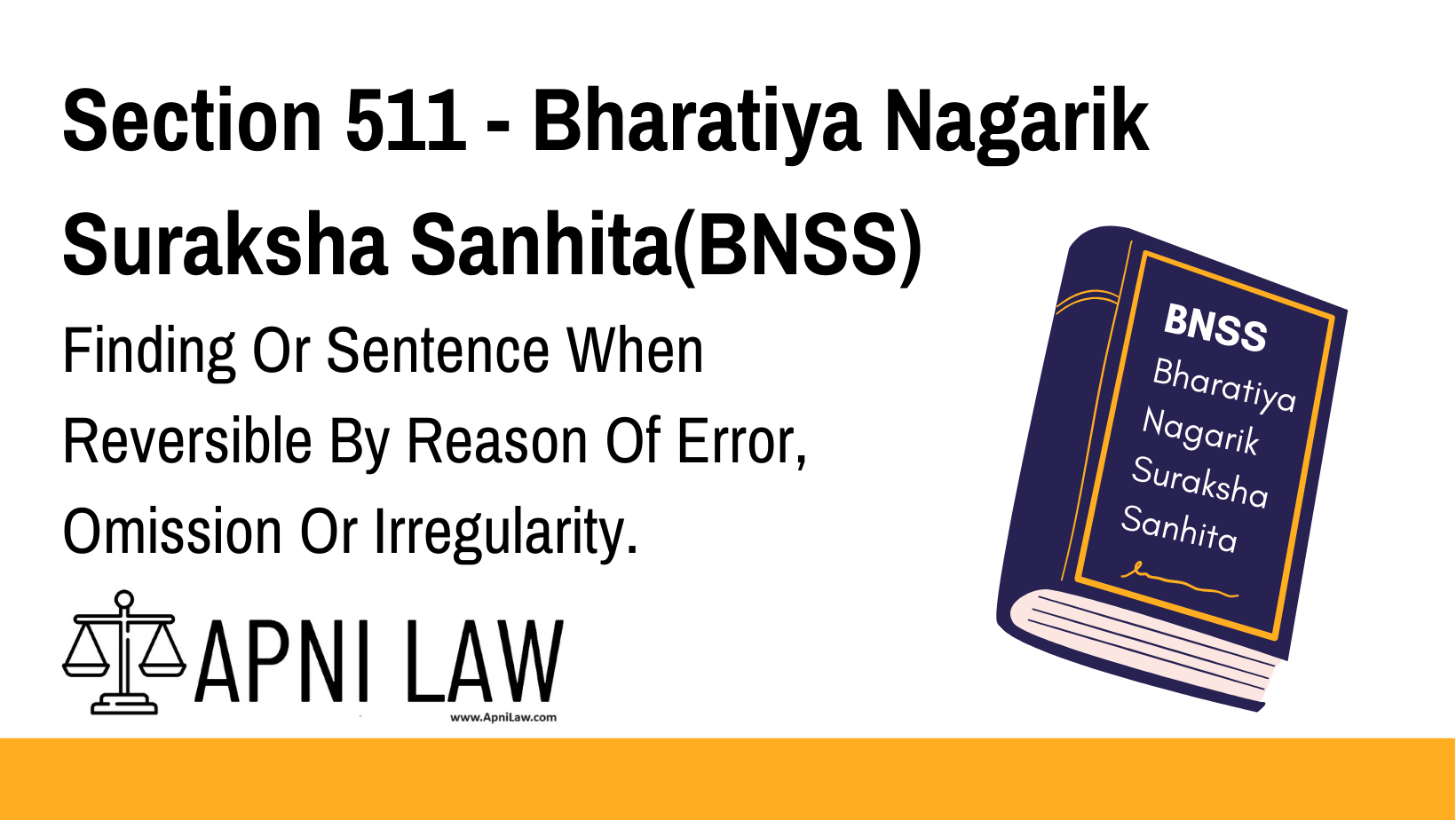Code: Section 511 BNSS
(1) Subject to the provisions hereinbefore contained, no finding, sentence or
order passed by a Court of competent jurisdiction shall be reversed or altered by a Court of
appeal, confirmation of revision on account of any error, omission or irregularity in the
complaint, summons, warrant, proclamation, order, judgment or other proceedings before or
during trial or in any inquiry or other proceedings under this Sanhita, or any error, or
irregularity in any sanction for the prosecution, unless in the opinion of that Court, a failure
of justice has in fact been occasioned thereby.
(2) In determining whether any error, omission or irregularity in any proceeding under
this Sanhita, or any error, or irregularity in any sanction for the prosecution has occasioned
a failure of justice, the Court shall have regard to the fact whether the objection could and
should have been raised at an earlier stage in the proceedings.
Explanation of Section 511 BNSS
Section 511 of the BNSS deals with the conditions under which a Court’s decision can be overturned due to procedural errors, omissions, or irregularities. It emphasizes that:
- No finding or sentence can be reversed simply because of minor mistakes or irregularities in legal procedures unless such errors have actually resulted in a failure of justice.
- Failure of justice is the key criterion. The Court must be convinced that the error had a substantial impact on the outcome of the case.
- Timing of objections matters. If a party could have raised the issue earlier but failed to do so, the Court may consider that in its decision.
This provision aims to maintain the integrity of judicial decisions while preventing unnecessary reversals based on technicalities unless there’s a real risk of injustice.
Illustration
Example 1: Minor Procedural Error
A Court convicts a person for theft, but the summons was issued with a typographical error in the name of the accused. The appeal Court, under Section 511, will not reverse the conviction unless it is shown that this error affected the fairness of the trial.
Example 2: Error in Sanction for Prosecution
Suppose the prosecution’s sanction was signed by an official without proper authority. If the accused raises this in an appeal, the Court will only reverse the sentence if it determines that this irregularity resulted in a failure of justice.
Common Questions and Answers on Section 511 BNSS
1. Can a conviction be overturned just because of a procedural error?
- Answer: No, under Section 511, a conviction cannot be overturned solely due to procedural errors unless they caused a failure of justice.
2. What does “failure of justice” mean in Section 511?
- Answer: It refers to situations where the error had a significant impact on the fairness of the trial, such as affecting the outcome of the case.
3. Does Section 511 apply to appeals and revisions?
- Answer: Yes, it applies to all appeals, confirmations, and revisions under the BNSS.
4. What happens if an objection is raised late in the proceedings?
- Answer: The Court may disregard the objection if it could have been raised earlier, as per Section 511(2).
Conclusion
Section 511 of the BNSS ensures that while the legal process must be fair and just, it does not allow for technical errors to undermine the judicial system unless those errors result in actual harm to the fairness of the case. This balances the need for judicial accuracy with the goal of maintaining legal efficiency.








